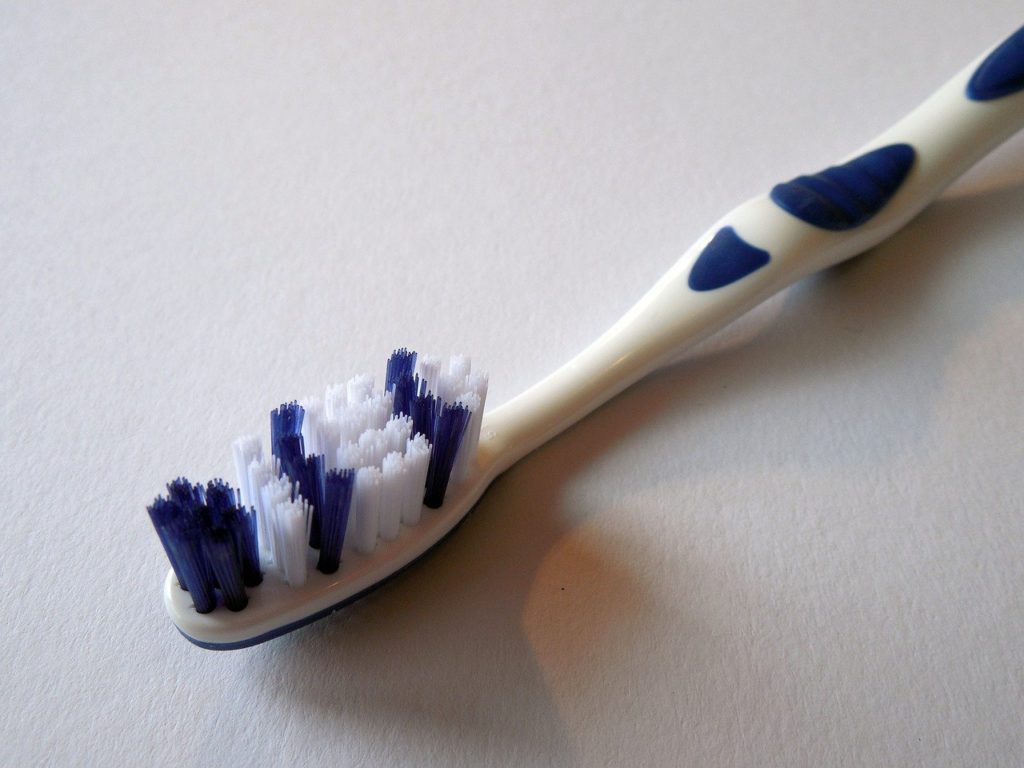There is a saying these days that sugar is the new fat, but is there any truth to this statement? The answer is yes, and no. Yes because added sugar – which is found in many processed food – has been proven to be bad for your health. The added sugar serves no purpose other than to excite your taste buds, thus tricking you into overeating. Processed food also tends to lack fiber, which is an essential component in helping your digestive system stay healthy. On the other hand, unprocessed food such as fruits and certain vegetables contain naturally-occurring sugar, along with plenty of fiber.
Our craving for sugar is actually inherited from our cave-dwelling ancestors back when energy-dense food was scarce. It is easy to imagine how sugary fruits, which pack more calories than leafy vegetables, were the food of choice. Fast-forward to the modern society where this scenario is no longer true. Instead of sugar being scarce, we are constantly surrounded by advertisements promoting sugary foods like ice cream, donuts, and cakes. Even products marketed as fat-free often contain added sugar (try reading the label on your fat-free yogurt).
We are not here to vilify sugar, especially of the naturally-occurring variety, because we believe in freedom of choice. Problems arise when we let our sugar consumption – processed or otherwise – become excessive and out of control. Below are some strategies that you can use in tackling your sweet tooth issue without feeling sugar-deprived.
1. Eat Organically-grown Food
Regularly consuming sugar can elicit sugar yearnings, something you can witness with your own eyes after having some sugary food. The sugar rush that you feel makes you want to eat more sugary food, thus creating a vicious cycle in the process. These are, unfortunately, empty calories and lack nutrients, thereby requiring you to consume a copious amount just to feel full. Even then, this feeling of fullness is rarely long-lasting.
If you find yourself reaching for a chocolate bar to satiate your sweet tooth, replace it with something healthier that is naturally sweet. Organic apples, bananas, and oranges are some alternatives that can help satiate your cravings without leaving you feeling sugar-deprived. Take note that organically-grown food, which tend to contain less pesticide residual, is also more nutritious than their non-organic counterpart.
2. Follow a Healthy Diet
Drinking a can of soda once in a while should not be cause for alarm if doing so can help alleviate the feeling of sugar deprivation. It, however, does not mean that you should eat or drink whatever is placed in front of you. Instead, the type and amount of food you ingest daily is what matters. Start by tracking the type of food you eat over 30 days, gradually reducing the amount of unhealthy food, especially those with added sugar.
You should also cultivate the habit of reading the nutrition labels on manufactured food products. This is important since many people fill their shopping basket with whatever they fancy without paying attention to a product’s nutrition content. Try basing your buying decision on health without sacrificing too much in terms of taste.
One final tip: eating high protein food can help curb your sweet tooth since protein takes longer to digest. Try replacing your chocolate cake in the afternoon with veggie sticks or raw nuts for a change.
3. Get Moving
Exercise discharges endorphins, the chemical responsible for creating in us a sense of euphoria. But do you know that consuming sugar – which requires significantly less effort – also produces the same effects? This explains why many people have a craving for sugary foods since eating them produces a temporary “high” in our brains. The “high” that we experience is not long-lasting and will come crashing down just as quickly as it went up.
Physical exercise, on the other hand not only delivers a great deal of endorphins, but also contributes to our overall physiological well-being without any of the negative effects. All you need is a brief stroll or jog for 20 minutes to feel the positive effects of endorphins kick in. Your body and mind will thank you for it.
4. Stay Hydrated
Your thirst can sometimes be mistaken for hunger even when you are not truly hungry. Most of the time, food cravings are nothing more than signs of thirst. Drinking enough water can thus indirectly help tackle your sweet tooth problem. Give this a go the next time you feel hungry. You may just be thirsty instead.
Find water boring? Try making your own infused drinks with simple ingredients such as mint, lemon, strawberries, or cucumbers in place of sodas. Get creative and conjure up your own list of ingredients! Make them in bulk and store some in your fridge for convenience’s sake. You can find a list of water-infused recipes here.
5. Try New Ways
Challenge yourself to seven days with limited or even zero sugar intake. While it is not necessary to start this challenge abruptly, taking charge of your sugar intake is one way to put a pause to your sweet tooth. Start by cutting down on or avoiding foods like sodas, candies, processed snacks, and any products containing added sugar. Replace them with fresh vegetables like carrots, beetroots, and various other fruits should you feel the urge to eat something sweet.
Your ultimate goal here is to gradually (re)acclimate your taste buds to the pleasure of eating healthy, unprocessed food. Feel free, however, to have a slice of cheesecake or a piece of chocolate as long as you keep the amount and frequency to the minimum. Eat your food mindfully and frequently swap out food that contains added sugar with something naturally sweet and preferably organic. A clean diet can bring about various benefits such as enhanced metabolism, clearer complexion, improved moods, and better overall health.
Disclaimer: Please consult your doctor before starting this challenge if you are on any sort of medication. Pregnant or lactating women should also seek a certified physician’s advice before making any radical dietary changes.
6. Chew Gum
It may come as a surprise but do you know that chewing a stick of gum could help suppress food cravings? Studies have shown that popping some low-calorie sticks of gum can reduce cravings without significantly impacting your overall calorie intake. Try chewing a piece of gum the next time you find yourself reaching for that sugary snack. Additionally, chewing gum at the end of a meal or while watching TV can help you to spare calories. Chewing gum can also promote better oral hygiene since it traps bacteria, although the effectiveness declines over time as the gum loses its adhesiveness.
Do not, however, expect the pounds to miraculously disappear because any significant weight changes will still depend on your calorie intake vs. calorie spent. Excessive consumption of chewing gums can also lead to a laxative effect, resulting in more active bowel movements.
7. Get a Good Night’s Sleep

We have written about the importance of sleep many times and what you can do to create a sleep routine that will leave you feeling energized upon waking. So what does sleep have to do with sweet tooth?
Studies have proven that inadequate sleep is linked to an increase in our stress hormones level. A higher stress hormone level means that our discretion and decisions-making capabilities become compromised. This consequently increases our likelihood of binging on unhealthy fatty and sugary foods. An irregular eating pattern combined with an irregular sleeping pattern is, therefore, a recipe for disaster.
Leave Your Sweet Tooth Days Behind

Start your sweet tooth challenge using one or more of these strategies and adjust accordingly to your circumstance. There is no one-size-fits-all approach to tackling one’s sweet tooth, so pick whichever one(s) you find to be the easiest and stick with it. Gaining control of your sweet tooth is beneficial not only in helping with cutting out sweets from your diet but also with maintaining good oral hygiene, the importance of which cannot be overstated.




